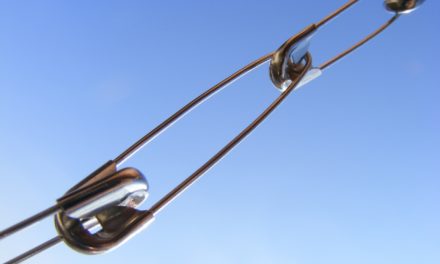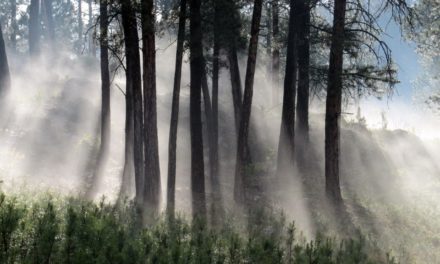As spring 2020 turned to summer and lockdown orders continued, I found myself turning each day to an anthology titled Poetry of Presence as an antidote to the news.
My favorite way to read it was, and still is, to let it find me where I am. I turned to it as I would a trusted friend, counting on it to tell me what I needed to hear. Like that trusted friend, it never fails.
I began to think of this daily practice as random reading. I grew to rely on it as a lifeline whenever I found myself consumed and sometimes paralyzed by the pandemic’s unfolding horror. There were days when I sat transfixed, watching the numbers of infections and deaths listed on the right-hand side of the screen as CNN scrolled through the daily counts. I felt helpless, and worse yet, useless.
Then one day in mid-April, I turned off the news and picked up the anthology. It wasn’t hard to find. It’s usually on top of whatever stack of books I am reading at any given moment. I opened it to a random page, trusting that I would find words that would help quiet my mind.
I opened to Alice Walker’s “I Will Keep Broken Things,” a poem I read many times, each time yielding rich new insights. Suddenly I noticed the simple words, “Thank you/so much.” I found myself in tears. To find an expression of gratitude in Walker’s litany of brokenness was a revelation. To recognize my own brokenness as a pilgrimage through this time of crisis was a healing testament.
I began consciously engaging in this new random reading practice, always finding words I needed to hear. If it sounds like silly superstition, it isn’t. I don’t claim that the book has some mysterious psychic power. It is more like a well-stocked pantry I can turn to when I am hungry for nourishment. It never fails to satisfy.
As the months passed, my gratitude to the editors, Phyllis Cole-Dai and Ruby R. Wilson, took on new meaning. Their book had long been a favorite refuge. I had thought many times since its release in 2017 that I should write them a thank you note. Now, in the midst of the pandemic, I wanted them to know what their book meant to me and how integral it had become to my peace of mind. I wanted them to know that in the new lexicon of pandemic life, they had proven to be essential workers in ways they might never have imagined.
This long-intended thank you note evolved into a poem.
In Case You Ever Wonder
(for Phyllis Cole-Dai and Ruby R. Wilson Editors of Poetry of Presence)
It started as a letter,
A simple thank you note for a book I love.
It started as a few thoughts
I would put down on paper someday
when I had the time.
And now I have the time,
like a castaway on a desert island
where I can finally say, yes,
this is the book I would want to have with me
when I washed up on that desolate shore.So, if you ever wonder,
I want to tell you both that you
are essential workers.
I want you to know that
in these dark days when everything has
Changed, changed utterly,
one thing that remains is the peace
I find when I open your book to a random page
and find exactly the words I need to hear.I want you to know that when I walk
the aisles of the supermarket
and see the masked employees stocking shelves,
I think of the nourishment I derive from
conversations with Pablo Neruda and Mary Oliver.When I think of bus drivers
ferrying nurses and janitors to work,
I think of the roads I have travelled
with Wendell Berry and Alice Walker at the wheel.When I hear the pots and pans clanging from windows
and the crowds cheering at the change of shift,
I think of you both as health care workers
toiling in the soul’s emergency room,
where the healing words you have assembled
give us the courage to see what’s beyond the masks
and pray for our ailing world.
I sent them the poem and was amazed to receive their warm and generous responses. Soon after, I was even more astonished to receive a poem Phyllis wrote in response to mine:
If You Ever Wonder
A response poem for Gloria Heffernan
I want you to know
in these dark days
when all the world
is utterly changed,
one thing that remains
is how we feel
when anyone opens
the book of Us
to a random page
and finds a truth
they had forgotten.Nurses and doctors,
meat packers and crop pickers,
journalists and janitors,
clerics and counselors,
bus drivers and truckers,
mail carriers and shelf stockers,
first responders and trash collectors,
scientists and governors and cooks,
every essential worker
eats and drinks
from the book of Us.Pots and pans clang
from balconies and windows
flung wide from street to sky.
We are the cheering crowd, the book of Us
assembled without masks and bound
together between soft covers
by a strong, supple spine.Every page is sacred text.
Nobody is not essential.
We are the prayer for our ailing world
and this is the beginning of our shift.
I continued my daily readings and when I saw the impact this practice was having on me, I became eager to share it with others. I developed a workshop for the Downtown Writers Center at the YMCA in Syracuse, New York. Participant response was overwhelmingly positive. It was a joy and privilege to teach the class and to know that it was helping during such a dark time. I wrote to Phyllis and Ruby again. They were delighted by the idea of the workshop and invited me to write a teacher’s guide which evolved into Exploring Poetry of Presence: A Companion Guide for Readers, Writers, and Workshop Facilitators. I am grateful and proud that it was the first publication issued by their new press, Back Porch Productions.
I have been told that the strategies and prompts in Exploring Poetry of Presence are helpful and healing. In truth, the writing process itself grew out of my own need to heal in order to navigate the collective grief that filled the news. Through writing and reading, I didn’t reject the news or run away from it. Instead, I found tools for processing it without despair. I found a way to coexist with the unfolding tragedy and find hope and compassion within its midst. Such is the gift of poetry and presence. Such is the gift I hope you will find in both the anthology and the companion guide.
Adapted from, Exploring Poetry of Presence: A Companion Guide for Readers, Writers, and Workshop Facilitators, by Gloria Heffernan, Back Porch Productions, 2021.







I’m new to braided way, and this mornings essay blew me away.
Though not poetry in itself, the work of Dr. Iain McGilchrist
explains the ‘why’ – in physiological terms – poetry is so darned
important. Though his later profession has been as a neuro-
psychiatrist, he began his career as a lecturer in literature at
Oxford University in London. He adores poetry.
His work, “The Master And His Emissary” is THE most important
book I have ever read. I cannot recommend it strongly enough
to. you. It is, however, very dense. Quite readable, but any
given sentence has SO much in it that it is a slow, if fascinating,
read. His ideas have enabled me to understand things in the
current culture that I’d basically given up on.
If that seems daunting, go to the website ‘Channel McGilchrist.
Click on free videos, scroll down to the bottom to”A Way of Listening”
an interview by a young musician. She introduces herself, and then
asks Dr. McG. to explain his thesis. The interview is over an hour –
and is worth the time, but his explanation at the beginning will give
you the ‘meat’ of his ideas.
I hope his ideas work to continue your openings
Thanks very much for your thoughtful observations and recommendations. I am not familiar with his work but will look forward to exploring the videos.
I LOVE this book–such a powerful and beautiful and practical way to find inspiration for our own writing coming out of reading the poems in Poetry of Presence. I love how there are ideas for how to read, and also specific ideas for a 12-week workshop, in addition to 50 prompts that draw on various poems in the book. Well written, provocative, heart-opening, generous. What a great book this is–I so recommend it to anyone interested in discovering how they, too, might let poetry help them explore the world.
Thank you so much, Rosemerry, for very kind and generous response. I love your work and that makes your thoughtful reply doubly meaningful.
Wonderful to read this. Poetry the sanctuary, isn’t it marvellous to be able to steal away, enjoy and have it nourish you so. When I write it feels the same. Continued joyful sanctuary
Many thanks for your kind words.